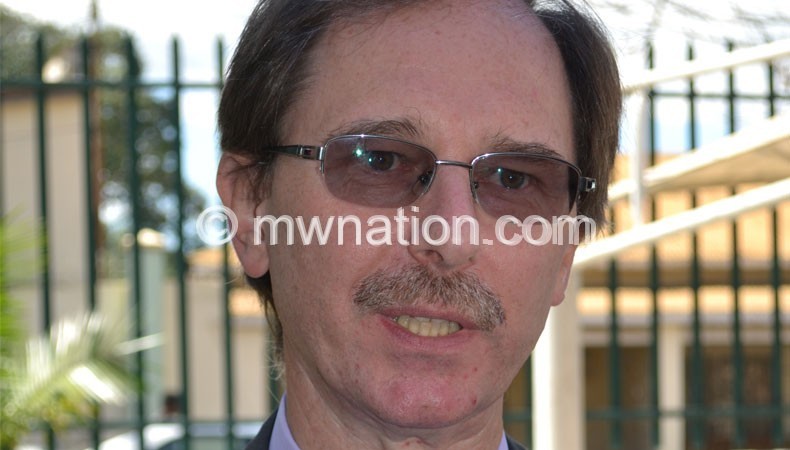EU, UK sceptical of zero-aid budget mantra

The United Kingdom (UK) and the European Union (EU) have expressed scepticism about the viability of the zero-aid budget in the absence of a clear economic growth path and sustainable revenue model.
In a written response to a questionnaire last week, head of the UK’s Department for International Development (DfID) Sarah Sanyahumbi warned that while London would love to see Malawi cut donor-aid reliance, Lilongwe is not ready for such a leap yet.
“We want that, too. [But] it will take time to deliver that graduation,” she said, agreeing, however, that it should be any country’s goal to become more reliant on trade than aid.
But Sanyahumbi said the critical question was how to get Malawi’s economy to grow faster, in a way that benefits all sections of society and is sustainable.
“That is a good debate for Malawians to have ahead of elections,” she said.
In a separate interview, EU Head of Mission in Malawi Alexander Baum said the zero-aid budget debate appears to be just an election talking point.
“I can see that this debate is drawn into the election and may, therefore, not lead to much. But be assured that nobody abandons Malawi,” he said.
Baum, however, said there was a legitimate demand that money is used properly and not stolen.
A few months ago, the Ministry of Finance announced its intention to base the 2014/2015 national budget on the assumption that there will be no foreign aid.
The announcement came on the back of the Common Approach to Budget Support (Cabs) group of donors’ announcement during its last review meeting that they are unlikely to unfreeze around $150 million (about K60 billion) planned for the current budget due to public finance management slippages largely exposed by Cashgate.
Cabs also indicated that given the slow pace of strengthening public finance management, it is possible that the group may not support even the 2014/15 national budget.
The idea of a zero-aid budget has gained traction among some observers, including respected budget watchers such as the Malawi Economic Justice Network (Mejn).
Mejn executive director Dalitso Kubalasa told Weekend Nation recently that he would encourage the incoming government—after May 20 elections—to prioritise weaning the country from donor dependence.
He said Cab’s recent stance on donor aid indicates that Malawi does not have the luxury of time to continue relying on foreign aid.
In an interview for this story last week, Kubalasa said while he agrees with the UK and EU that Malawi is not ready, it has become increasingly clear that Malawi has no choice but to start thinking about planning towards weaning the country from donor dependence.
“Whether we like it or not, soon or later we have to reach this level. This fiscal year is the evidence—donor support record is not healthy and one cannot plan when you are not sure whether the money will come or not,” he said.
Kubalasa said it might take 10 to 15 years before Malawi achieves the zero-aid budget, but said at the moment donor aid must be looked at as bonuses while the country pursues a budget without foreign support.
“Our orientation must change. We should enhance domestic resource mobilisation, plug the hole of corruption and plug the whole of plunder. We should encourage the mentality of professional integrity across the civil society, private sector and government,” he said.
In manifestos of four leading political parties, the issue of donor independence is not explicitly discussed.
Malawi Congress Party says it will move the country towards self-sustenance through investment, equity participation and search for new definitions of structural adjustments and economic reforms.
The ruling People’s Party is more pragmatic on the issue. Rather than a complete divorce from aid, it says it will mobilise alternative finances to significantly reduce donor dependence.
United Democratic Front does not seem to recognise the need for the country to be self-sustaining.
Democratic Progressive Party plans to bring back its failed zero-deficit budget that did not work too well under the Bingu wa Mutharika administration, having left the country’s economy on the deathbed.





